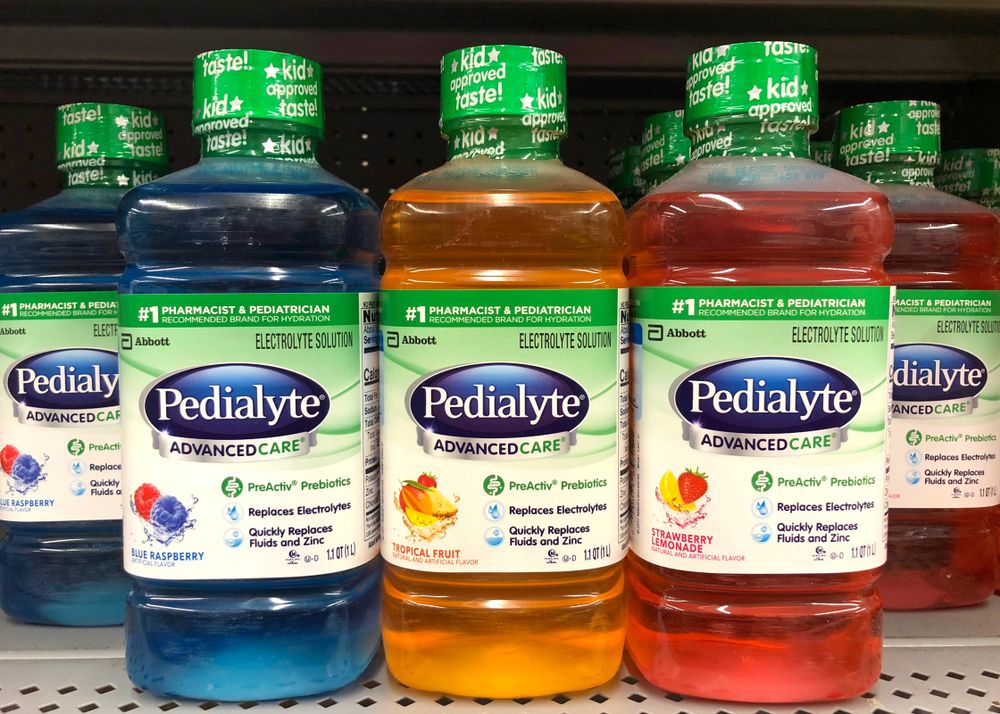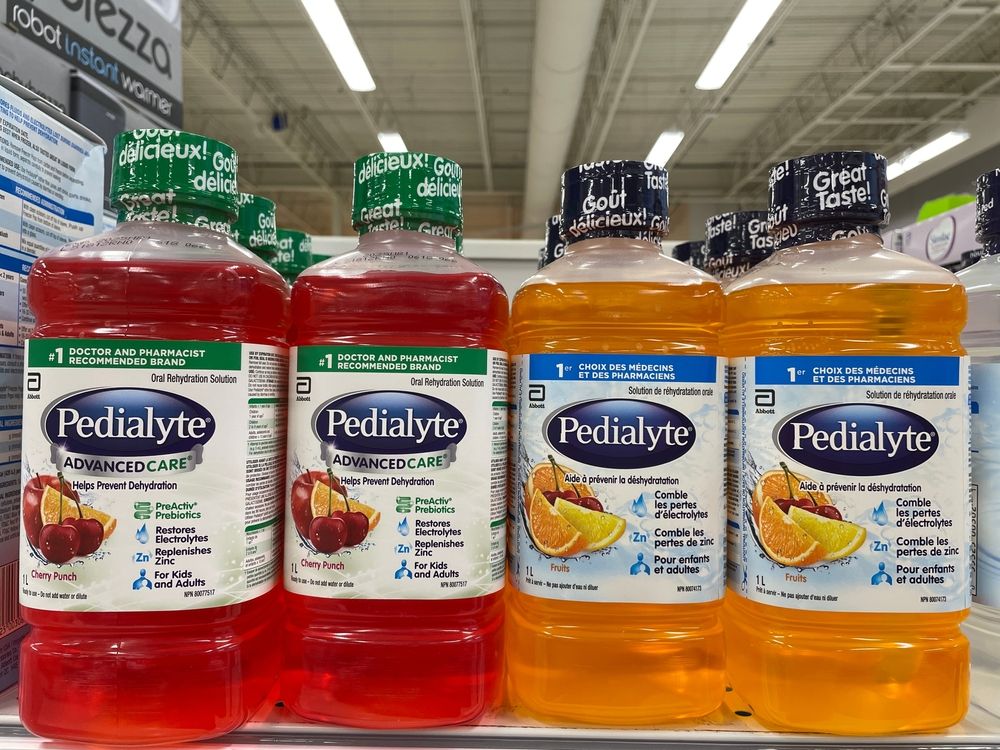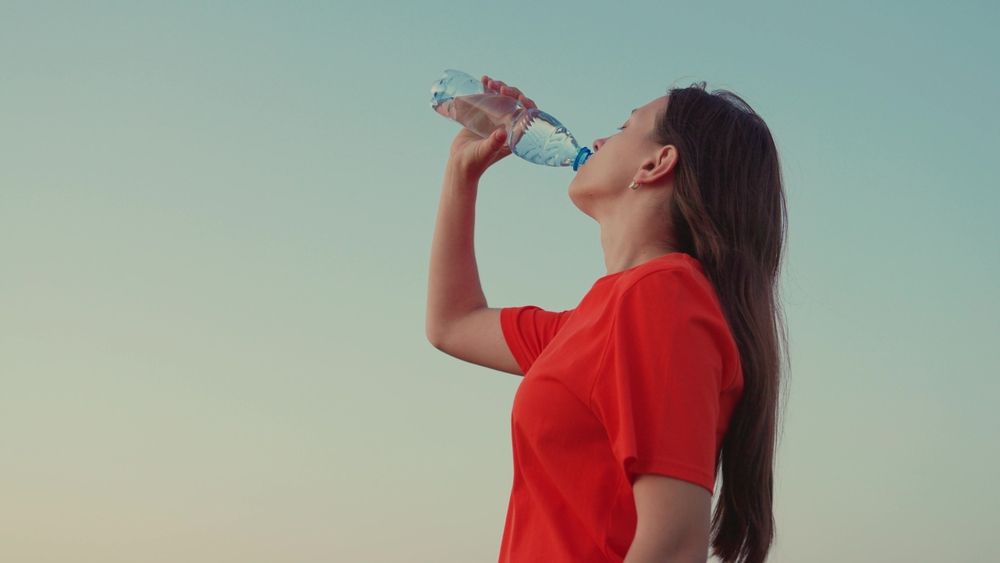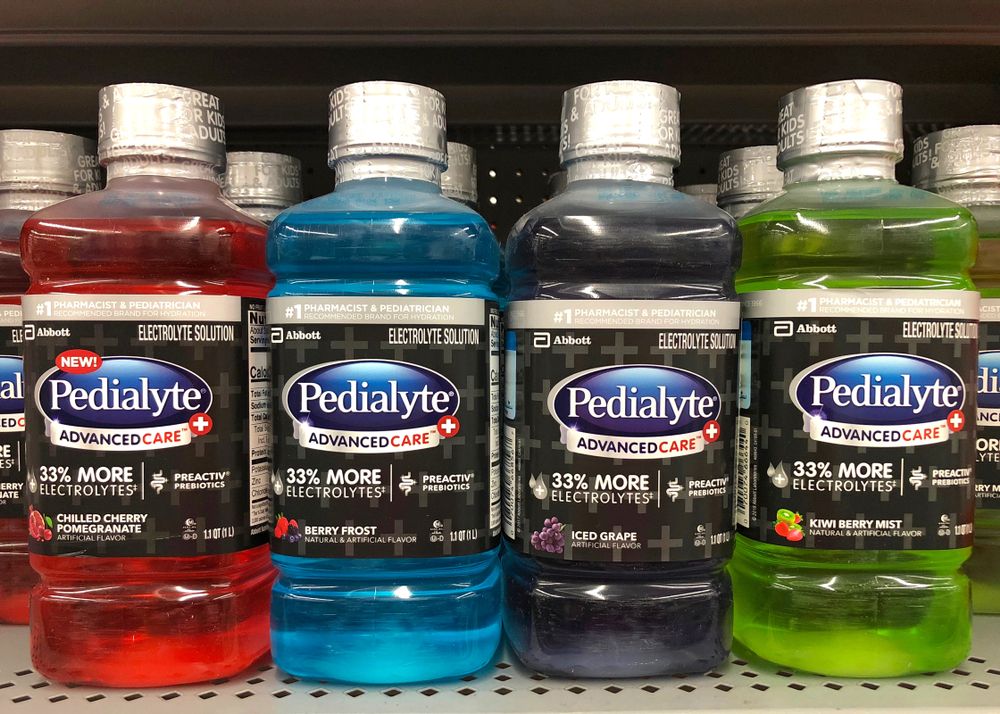
Originally developed to treat dehydration in children, Pedialyte has become increasingly popular among adults. Whether for rehydration after an intense workout, recovery from illness, or relief from hangover symptoms, many adults now rely on Pedialyte for a quick hydration boost.
But what exactly is Pedialyte, and how does it impact adult health? Read on to explore the potential benefits and drawbacks of drinking Pedialyte as an adult, helping you decide if it's the right choice or if another electrolyte drink might better suit your needs.
What is Pedialyte?

Pedialyte is an oral rehydration solution initially created to treat dehydration from nausea and vomiting, especially in children. However, the brand has since expanded, now offering various products tailored for different needs, including sports hydration and immune support. Unlike many sports drinks or sugary beverages, Pedialyte options tend to be lower in sugar and higher in electrolytes.
Pedialyte offers a range of formulations, including:
- AdvancedCare Plus: Contains 33% more electrolytes.
- Sport: Formulated with five essential electrolytes.
- AdvancedCare: Includes PreActiv prebiotics to promote digestive health.
- Immune Support
- Classic
- Electrolyte Water: Features three key electrolytes, zero sugar, no colors, and no artificial flavors.
- Fast Hydration: Provides an optimal balance of glucose and electrolytes.
- Organic: Free from artificial colors, sweeteners, or flavors.
- Half Liters
- Drink Mix: Powder format for mixing with water.
Pedialyte Nutrition
Here’s the nutritional breakdown for Classic Pedialyte (per 12-ounce serving):
- Calories: 45
- Fat: 0 g
- Sodium: 370 mg (16% DV)
- Carbohydrates: 12 g (0 g fiber, 9 g sugar)
- Protein: 0 g
- Potassium: 280 mg (6% DV)
- Chloride: 440 mg (19% DV)
- Zinc: 2.8 mg (25% DV)
With only 45 calories per serving, Classic Pedialyte provides an electrolyte blend of sodium, potassium, and chloride to support hydration. It also includes 9 grams of sugar to aid in electrolyte absorption without excessive sweetness. Zinc is added, offering immune support.
Pedialyte Ingredients
Pedialyte’s main ingredients include water, dextrose (a type of glucose), and a blend of electrolytes, such as potassium citrate, sodium chloride, and sodium citrate. Depending on the specific product and flavor, additional ingredients like vitamins, minerals, preservatives, and artificial flavors, colors, or sweeteners (e.g., sucralose, acesulfame-K) may be included.
For instance, Pedialyte Sport Berry Freeze contains water, dextrose, galactooligosaccharides, salt, potassium citrate, citric acid, natural and artificial flavors, potassium phosphate, magnesium chloride, sodium citrate, sucralose, acesulfame potassium, and Red 40.
Benefits of Drinking Pedialyte as an Adult

Drinking Pedialyte as an adult can offer several benefits:
Aids Recovery from Illness
During illnesses involving vomiting or diarrhea, significant fluid and electrolyte loss can occur, potentially worsening symptoms and slowing recovery. Pedialyte can be helpful for adults recovering from a stomach bug or food poisoning, as it replenishes essential minerals like sodium and potassium and provides necessary fluids to prevent dehydration.
Many adults opt for sports drinks like Gatorade when ill, but the high sugar content in these drinks may aggravate diarrhea. Pedialyte, being lower in sugar, is often a better choice for rehydration during vomiting or diarrhea.
May Help Alleviate Hangover Symptoms
After a night of drinking, Pedialyte can help alleviate hangover symptoms by replenishing fluids and electrolytes lost due to alcohol consumption. Alcohol can cause dehydration, and Pedialyte may help ease dehydration-related symptoms like headaches, dry mouth, and fatigue.
Supports Exercise Recovery
During intense workouts, the body loses significant fluids and electrolytes through sweat. Pedialyte provides a quick way to rehydrate and restore electrolyte balance, which can help prevent post-workout issues like muscle cramps, fatigue, and dizziness.
While Classic Pedialyte works well as a post-exercise recovery drink, Pedialyte also offers a Sport version specifically formulated for workout recovery. This version has three times the electrolytes and only a quarter of the sugar compared to leading sports drinks. It includes five key electrolytes—sodium, chloride, potassium, magnesium, and phosphate—to support fluid balance and muscle repair.
Potential Drawbacks
While Pedialyte can be a helpful hydration option in certain situations, there are some potential downsides to consider.
High Sodium Content
Although Pedialyte is lower in sugar than many sports drinks, it contains more sodium than plain water and some other hydration options. Regular use could lead to an excessive sodium intake, which may be concerning for individuals with high blood pressure or those monitoring their sodium levels.
For reference, the American Heart Association advises limiting sodium intake to no more than 2,300 milligrams per day. A 12-ounce serving of Classic Pedialyte contains 370 milligrams of sodium, or 16% of the daily limit. Consuming multiple servings daily can quickly increase sodium intake, though this is generally not an issue when Pedialyte is used for its intended purpose, such as rehydrating after illness or intense exercise.
Not a Substitute for Balanced Nutrition
Pedialyte is formulated to address dehydration but does not provide complete nutritional support. Relying too heavily on Pedialyte for hydration could mean missing out on the benefits of water, which is free of added sugars and electrolytes. Additionally, Pedialyte lacks protein, so it should not be used as a primary source of nutrition.
Unnecessary for Mild Dehydration
For mild dehydration resulting from everyday activities, Pedialyte may not be necessary. In such cases, drinking enough water and maintaining a balanced diet are usually sufficient to stay hydrated and support electrolyte balance.
When Should Adults Consider Drinking Pedialyte
Adults might consider drinking Pedialyte during or after intense physical activity, especially in hot weather, to prevent or treat dehydration.
Pedialyte can also be helpful during illness, especially if symptoms like vomiting or diarrhea lead to significant fluid loss.
Finally, it may serve as a hangover remedy to quickly restore fluids after a night out.
Alternatives to Pedialyte for Adults

Coconut water offers a natural way to stay hydrated and replenish electrolytes without artificial ingredients or sweeteners. A one-cup serving of coconut water provides about 45 calories, 6 grams of sugar, 60 milligrams of magnesium, 600 milligrams of potassium, and 250 milligrams of sodium.
For those who prefer a homemade oral rehydration solution, you can mix four and a quarter cups of water with half a teaspoon of salt and two tablespoons of sugar for a simple rehydration drink. Another option is to combine three-quarters of a cup of apple juice with three and a quarter cups of water and half to three-quarters of a teaspoon of salt. While these homemade drinks can be effective in a pinch, they may not be as palatable as products like Pedialyte due to their salt content.
Final Thoughts
Though Pedialyte was originally designed to treat dehydration in children, its electrolyte-rich formula has gained popularity among adults for rehydrating after intense exercise, illness, or even hangovers. It can provide quick rehydration when necessary.
However, it's important to watch its sodium content and remember that it’s not a replacement for a balanced diet and adequate water intake. For mild dehydration, a balanced diet and water are often enough. Coconut water is also a good natural alternative for those seeking a simpler option.
Consuming Pedialyte without a specific need can lead to excessive sodium intake, which may be a concern for those with high blood pressure or kidney issues. For everyday hydration, water remains the best choice.

